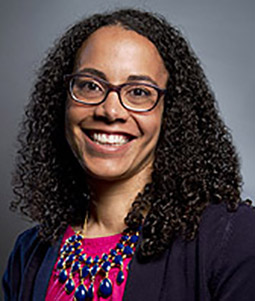Jocelyn Carter,

School, Family, and Community Partnerships for Healthy Eating in a High-Risk Urban Neighborhood
Childhood obesity is a serious health condition affecting approximately one in three children in the United States (American Heart Association, 2010). Disproportionately affecting African Americans, obesity is both a condition of poor health behaviors and social inequality. The research illustrated the importance of examining the role of culture, environment, and social norms in shaping health behaviors and outcomes in African Americans parents and children. The study included focus groups and survey data from self-identified African American parents/guardians. Participants were recruited from a charter school in Chicago which serves a largely low-income African American population. In examining childhood obesity from cultural and socio-ecological perspectives, researchers are able to inform the development of culturally-tailored childhood obesity interventions to reduce the disparity and contribute to the positive growth and development of future generations.
The primary objectives of the study were:
To understand caregivers’ cultural beliefs and practices about health, obesity, physical activity, and nutrition using qualitiative methods, such as focus groups.
To validate information from these surveys using existing questionnaire methods.
The CBR project was integrated into the course PSY 353 Abnormal Psychology during the spring of 2017. The team presented the project at the Society for Pediatric Psychology Annual Conference in April of 2018.